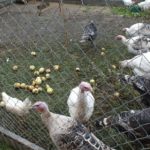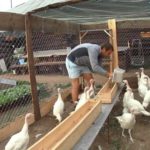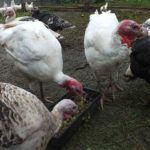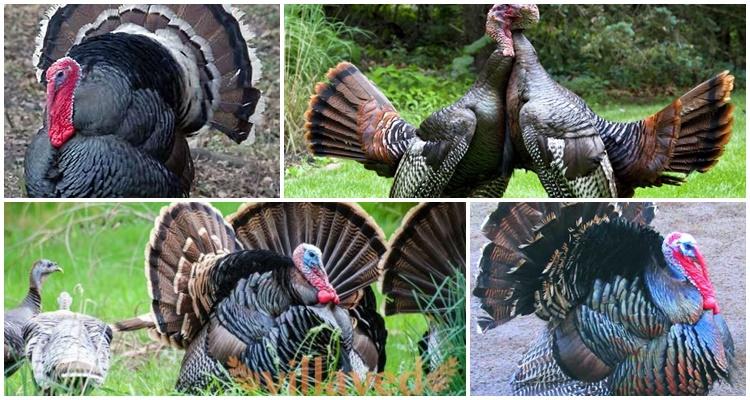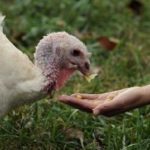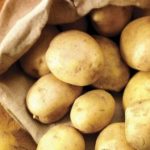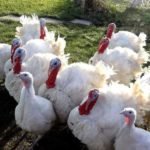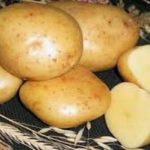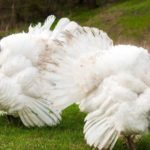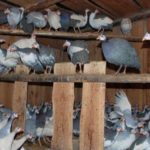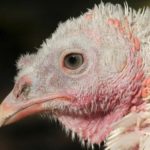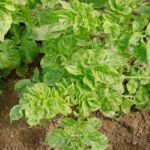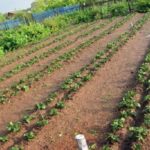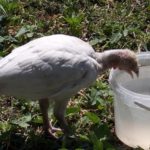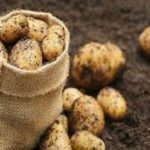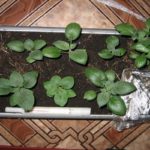Keeping turkeys is a responsible business. No one would dare leave a bird hungry. Nevertheless, poultry farmers strive for their farming to be as cost-effective as possible. It's rare that someone doesn't grow potatoes. Therefore, it is very important to know whether turkeys can be fed raw or boiled potatoes, at what age and in what quantities. Are there situations when it is necessary to refuse to use vegetables as feed?
Is it possible to feed turkeys potatoes?
A poultry farmer may have different goals. In accordance with them, various tactics for raising turkeys are used:
- quickly fatten up the birds for meat;
- get more eggs;
- allow pets to slowly grow up in almost natural conditions, moving a lot and eating greens and insects.
In all cases, a living organism requires a certain set of organic and mineral elements consumed during feeding to maintain health. Turkeys need:
- proteins for the formation of skeleton, muscles and other tissues;
- carbohydrates as a building material and a relatively high-calorie product;
- fats as a mobile source of energy;
- fiber causes a feeling of satiety and helps the digestive processes;
- vitamins are necessary for the production of enzymes that accelerate metabolism and strengthen the immune system;
- minerals regulate metabolism, are part of enzymes, participate in the formation of the skeleton, and regulate the acid-base balance.
What does a turkey get from potatoes?
The chemical composition of a vegetable is influenced by various factors. Among them:
- weather;
- use or lack of fertilizers;
- careful care of the crop;
- variety;
- soil type;
- degree of maturity;
- duration and storage conditions.
The average content of valuable components in potatoes was calculated.
| Name of substances found in potatoes | Percentage |
| Water | 75 |
| Starch | 18,2 |
| Sahara | 1,5 |
| Cellulose | 1 |
| Raw protein | 2 |
| Fats | 0,1 |
| Other organics | 1,6 |
| Minerals | 1,1 |
Thanks to the large amount of starch, potatoes are one of the most high-calorie vegetables. The protein contained in potatoes is part of the blood of animals. The proteins of such a familiar vegetable are in second place in terms of biological value after meat and eggs. Most grain crops are inferior to them in this indicator. This conclusion is based on the high content of amino acids in potatoes, including essential ones.
If turkeys constantly consume boiled tubers, their diet will be enriched with a sufficient amount of vitamin C, potassium and phosphorus, even without the use of premixes. Potatoes also contain a lot of iron and calcium. Linolenic acid from the fat of this product is a true gift for turkeys, since it cannot be produced in their body, although it is needed by it.
How to give potatoes?
Complementary food in the form of a vegetable boiled and then crushed in its own broth begins to be added to turkey poults, starting from the 3rd week of life. First - 5-7 g per head per day, from two months - 50-60 g. Then the amount is tied to the weight of the bird.
| Daily potato consumption per 1 turkey, g | Live weight, kg |
| 100-120 | 4 |
| 200 | 5-7 |
| 300 | 7 or more |
Boil the potatoes, washed from dirt, unpeeled. The skin contains the largest amount of microelements, and the pulp next to it contains proteins. It is advisable to add feed made for birds of a certain age to this mixture. It is advisable to feed young animals 1-2 months old 4 times a day. Later, the number of food servings is reduced to 2-3 times.
In what cases should you not give?
Eating potatoes prevents blood clotting. Injuries involving damage to the skin and muscles of turkeys are extremely rare. But just in case, it is useful to know that it is not advisable to feed potatoes to such a bird during the period of wound healing.
The more solanine, the richer the green color. It has been scientifically proven that the named substance harms not only the human body, but also birds. Greened tubers eaten in large quantities can cause serious poisoning.

